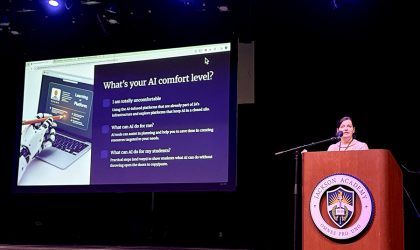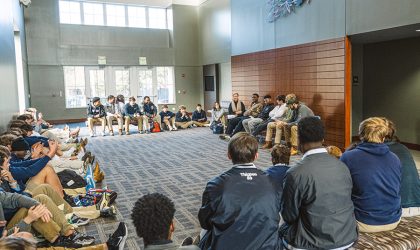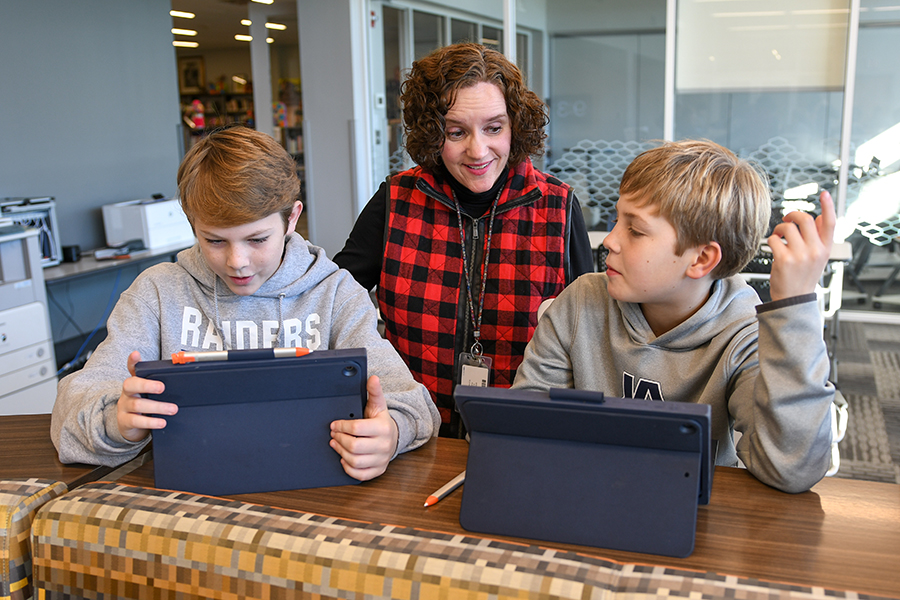

Experienced public relations professionals at a communications conference I recently attended wrestled with the topic of incivility. Their task was to determine what they could do as communicators about the rise of incivility, which is often at the forefront of daily experiences on social media.
One place society can gain leverage in restoring a culture of civility is within schools. Jackson Academy faculty members, like many others who work in education, train students about respectful online practices, offer guidance, and emphasize the importance of kindness to others whether interacting online or in person.
Be Genuine in Person and Online
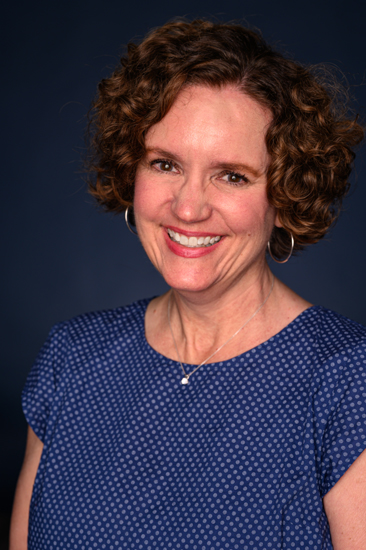
Jackson Academy faculty member Bronwyn Burford encourages students to be the same person online that they are in face-to-face communication. “Be the person online that you are to your friends, your parents, your teachers, and your grandparents,” Burford advises students in her digital citizenship class for fifth graders. This required class provides a year-long study of internet use.
In 2019, the fifth graders conducted the Kindness Campaign. Students learned about cyberbullying and netiquette and applied those lessons to a campaign viewed by the entire JA campus. (Author Rachel Lies: https://issuu.com/jacksonacademy/docs/2019_jackson_academy_true_blue)
“I remind my kids you have to be the same person in both worlds. You cannot have good manners in one and not the other because at some point it will catch up with you,” Burford said.
Online Behavior Good and Bad
Online disinhibition is a term used to explain why an individual may behave differently online than they do in real life. Factors such as anonymity, the lack of immediate repercussions, and the absence of non-verbal cues, which occur naturally in face-to-face communication, often play a role.
“We do talk about anonymity and digital cruelty. I try to help the students think of even small ways that being unkind can creep into their online life,” Burford said.
While online disinhibition can drive negative behaviors, it may support positive ones. For example, some individuals may respond in a more open, honest manner online than what they would in person. Also, responding online in writing versus face-to-face allows an individual to take time to carefully choose and weigh words.
The Reality of What’s Online
Burford also teaches digital citizenship to ninth graders in a course that meets students’ high school academic technology requirements. The class is offered online as a way to prepare students for future online courses in college and beyond. In her class for ninth graders, Burford stresses that not everything on the internet is accurate.
“Everyone’s life is not what is posted on Instagram. Don’t compare yourself on social media or be focused on the number of likes, posting for others’ approval. Also, give yourself a digital break from time to time by deleting apps and getting off social media,” Burford advises students. Burford’s guidance to avoid a focus on “likes” is being reflected in recent actions by social media sites that are testing removing “like” counts to see if that reduces social pressure and makes users’ experiences more positive.
This year, Burford’s fifth grade class will pair off with a senior class for a question-and-answer discussion during which seniors will be panelists and students will question them about the pros and cons of social media.
Make Kindness a Practice
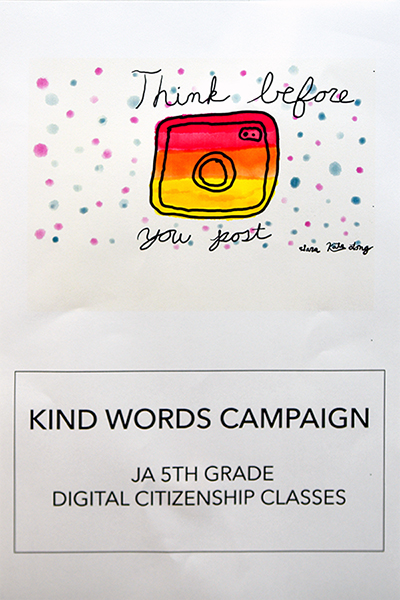
School is a place where the practice of kindness can permeate the environment, and at JA, the staff and faculty are committed to fostering that characteristic in their developing students.
JA surveyed the campus community about character traits that they would most like to see developed in individuals. Kindness was one of the top three traits. The other top two were respectfulness and honesty, both of which influence writing on social media.
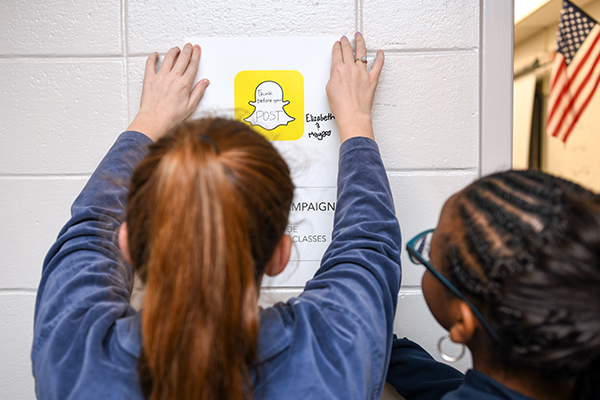
During the Kindness Campaign, fifth graders had the opportunity to lead. On their iPads, they created posters with messages such as “Think before you post,” “You are beautiful,” and “Kind words. Kind hearts.” Posters were printed and displayed throughout campus. The students were enthusiastic about their creations and enjoyed feedback from the campus community.
Read the Words and Respond
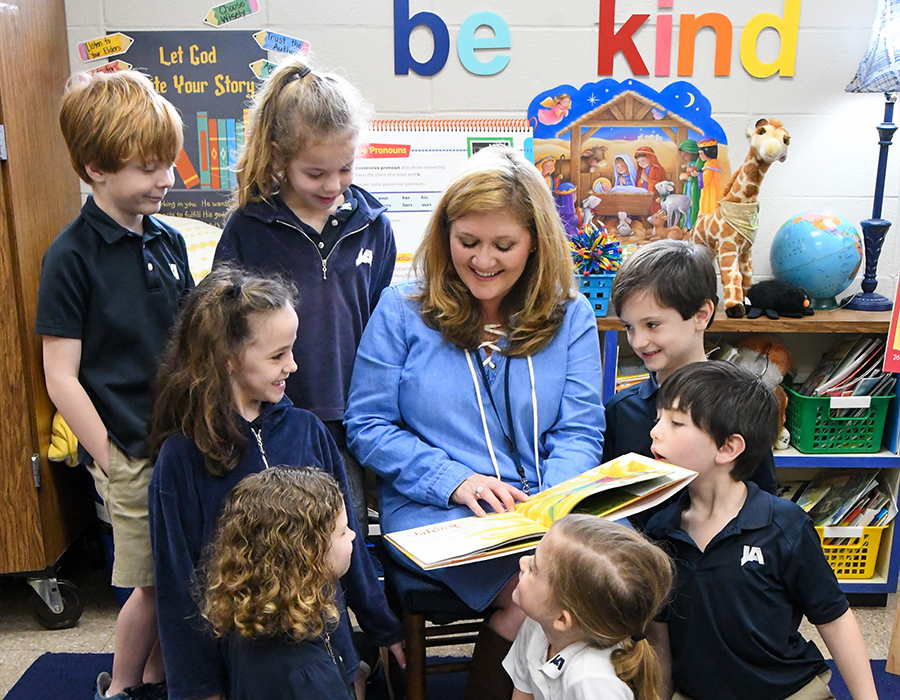
A recent photo shoot featured a teacher reading to students in Lower School. The image also captured the teacher’s classroom wall where large, bright letters spelled Be Kind, another example of a way teachers reinforce kindness.
To all of her students, Burford offers this: “It all comes back to the choices you make and how you want to represent yourself” – and that’s good advice online and in most any situation.
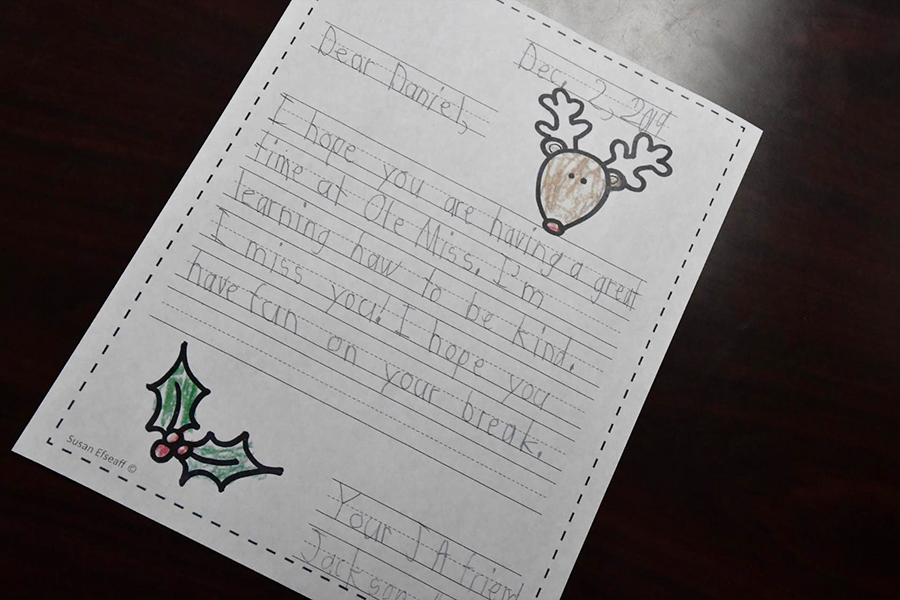
Like the letters on the wall at the Lower School spell out: Be Kind.
We can choose to be kind.
About the author: Patti P. Wade, APR, leads the Office of Marketing & Communication at Jackson Academy. This article is part of a series that highlights character traits Jackson Academy helps foster.

